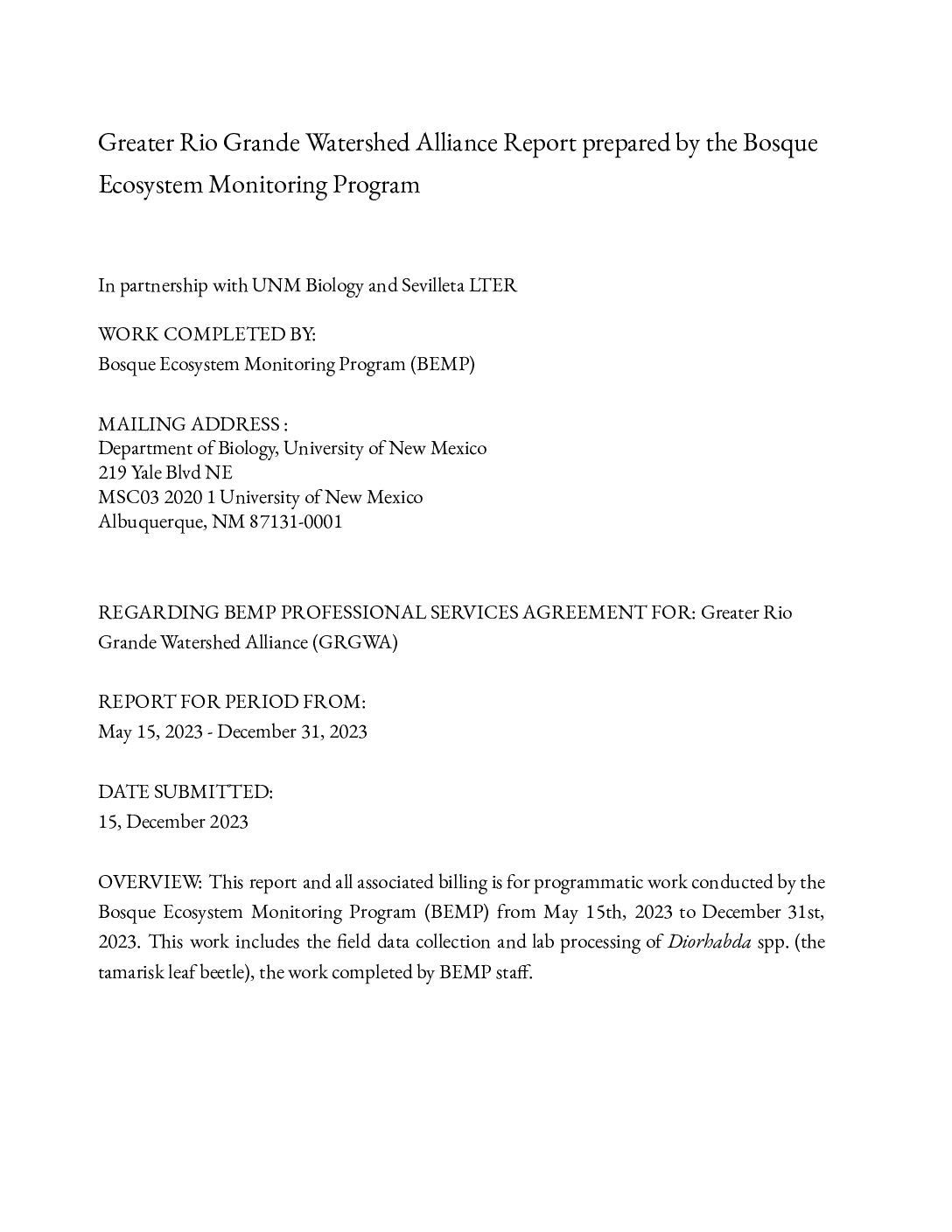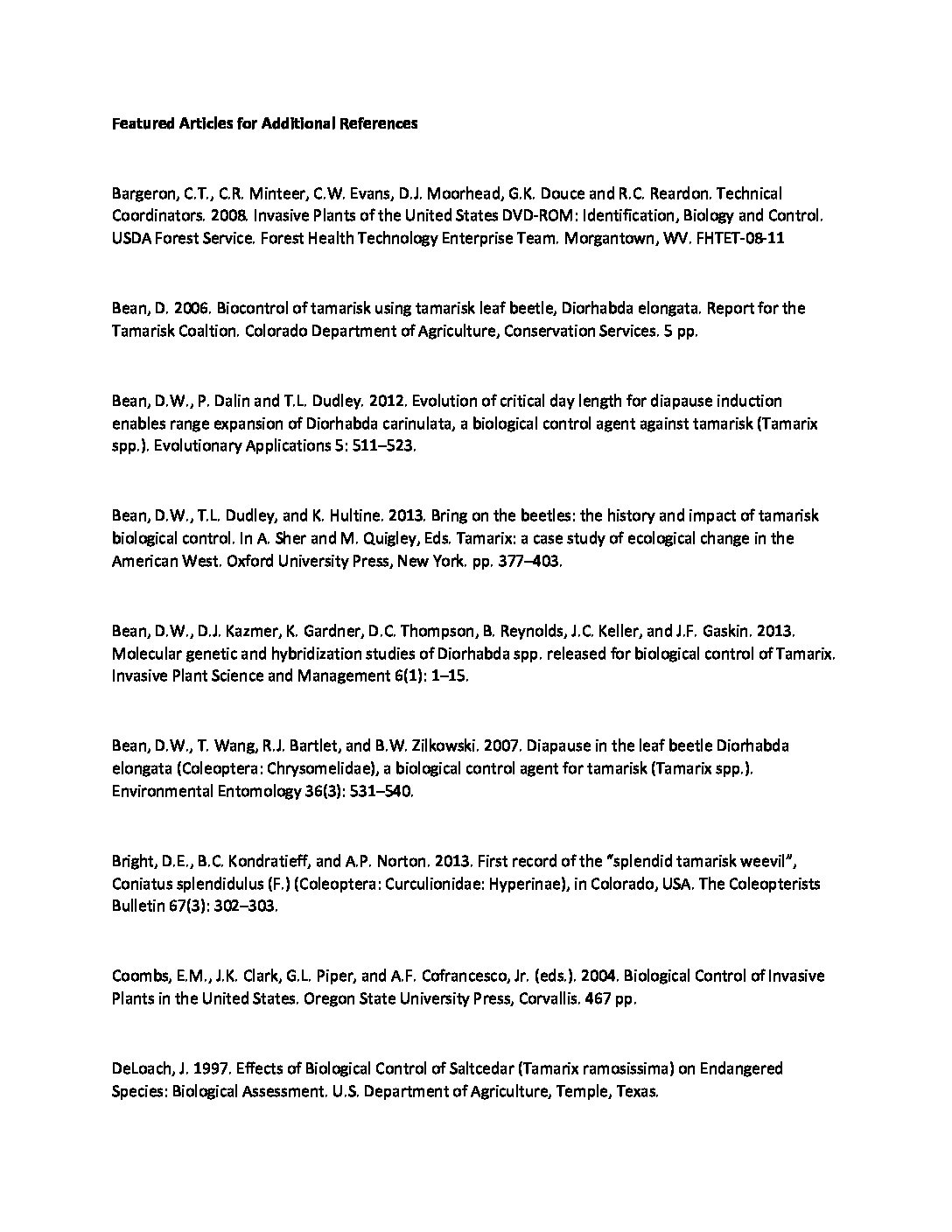The tamarisk leaf beetle (TLB) was first introduced in 2001, in an attempt to curb dense stands of saltcedars (tamarisk) that line southwestern rivers. The beetles spread quickly and now range from Montana to Mexico and California to Texas. While the TLB is a saltcedar obligate, meaning it only eats saltcedar leaves as both larvae and adult beetles, the intention behind the TLB introduction was not to entirely wipe out saltcedar, but to eliminate some of the population to allow regrowth of the native riparian plants like willows and cottonwoods. Land managers and researchers estimate that the TLB will probably contribute to the defoliation and eventual mortality of 70-85% of saltcedars in infested areas over the next several years. As saltcedar gradually dies back space will open up, allowing native plants to re-grow if conditions are suitable. One unforeseen consequence of TLB defoliation is the risk posed to the endangered southwestern willow flycatcher, where beetle populations and flycatcher critical habitat overlap. Saltcedar defoliation during the flycatcher breeding season can expose nests and eggs to the elements and predators. Reestablishment of native trees can provide good habitat in the future, but takes a considerable amount of time. Monitoring of beetle dispersal is needed to assess impacts to the flycatcher and to identify where restoration should be focused to minimize risks
New Mexico Tamarisk Leaf Beetle Monitoring Map
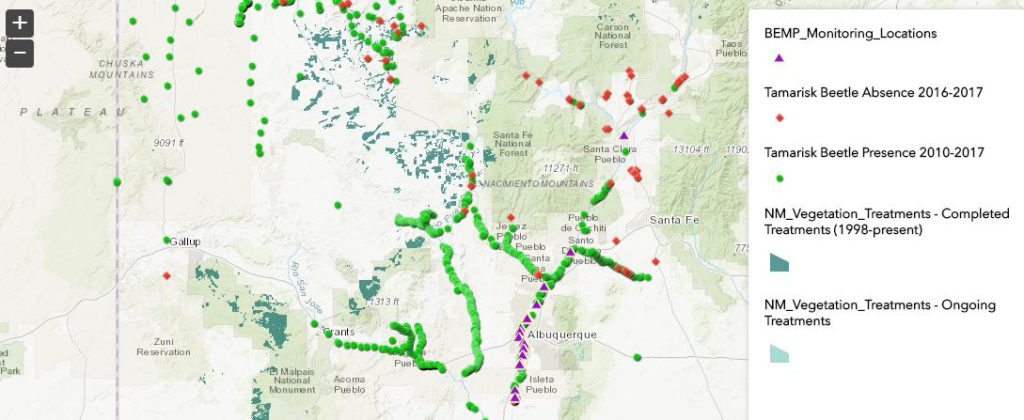
Tamarisk beetles have been monitored sine 2010. Visit the ArcGIS Web Application to explore the data.
Tamarisk Invasion and Fire in Southwestern Desert Ecosystems
Video Presented by Gail M. Drus, April 2015
Life Stages of Tamarisk Beetle
Visit this website to learn about the life stages of the tamarisk beetle
Other Tamarisk Leaf Beetle Resources
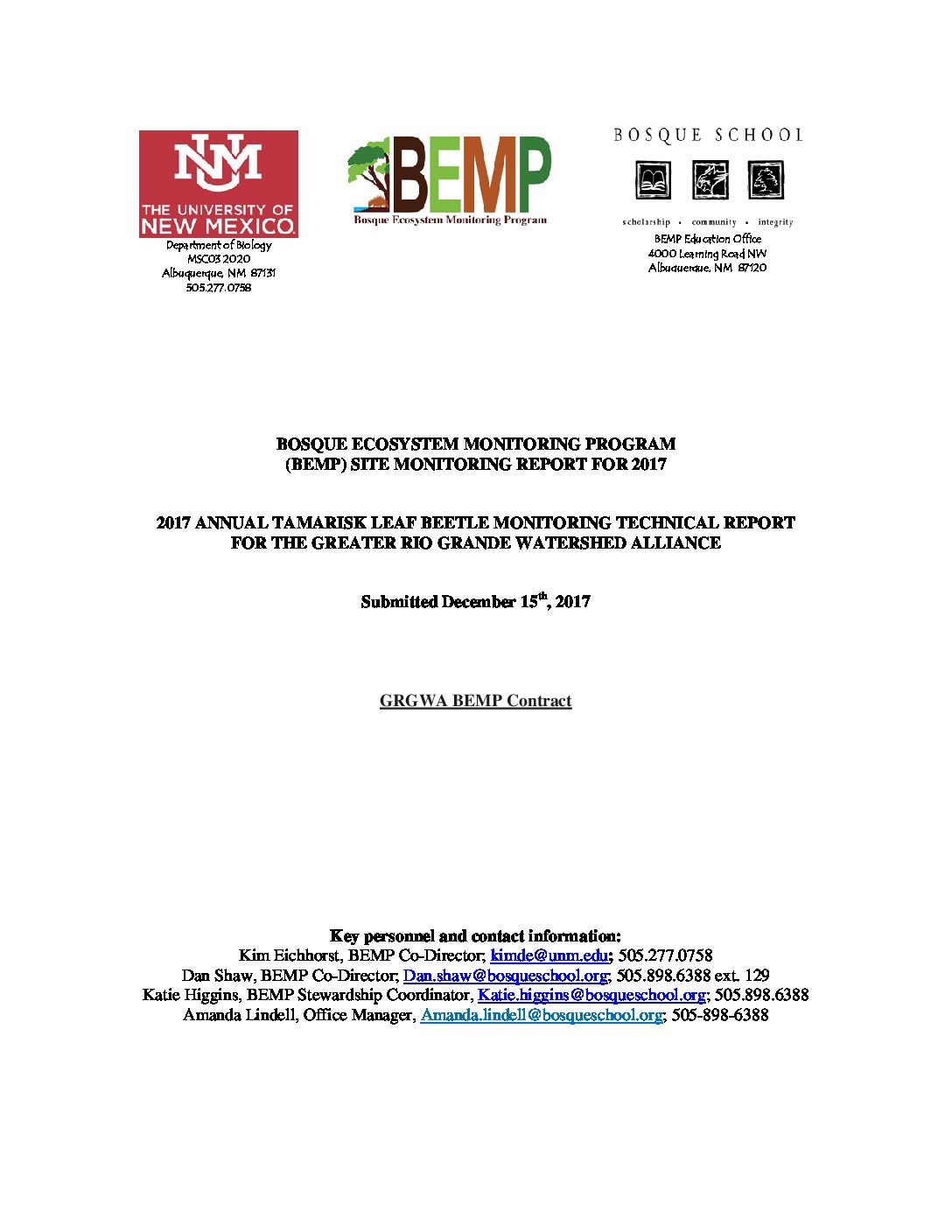
Bosque Ecosystem Monitoring Program (BEMP) Tamarisk Leaf Beetle Site Monitoring Report for 2017
Bosque Ecosystem Monitoring Program (BEMP) Site Monitoring Report for 2017 Annual Tamarisk Leaf Beetle Monitoring Technical Report
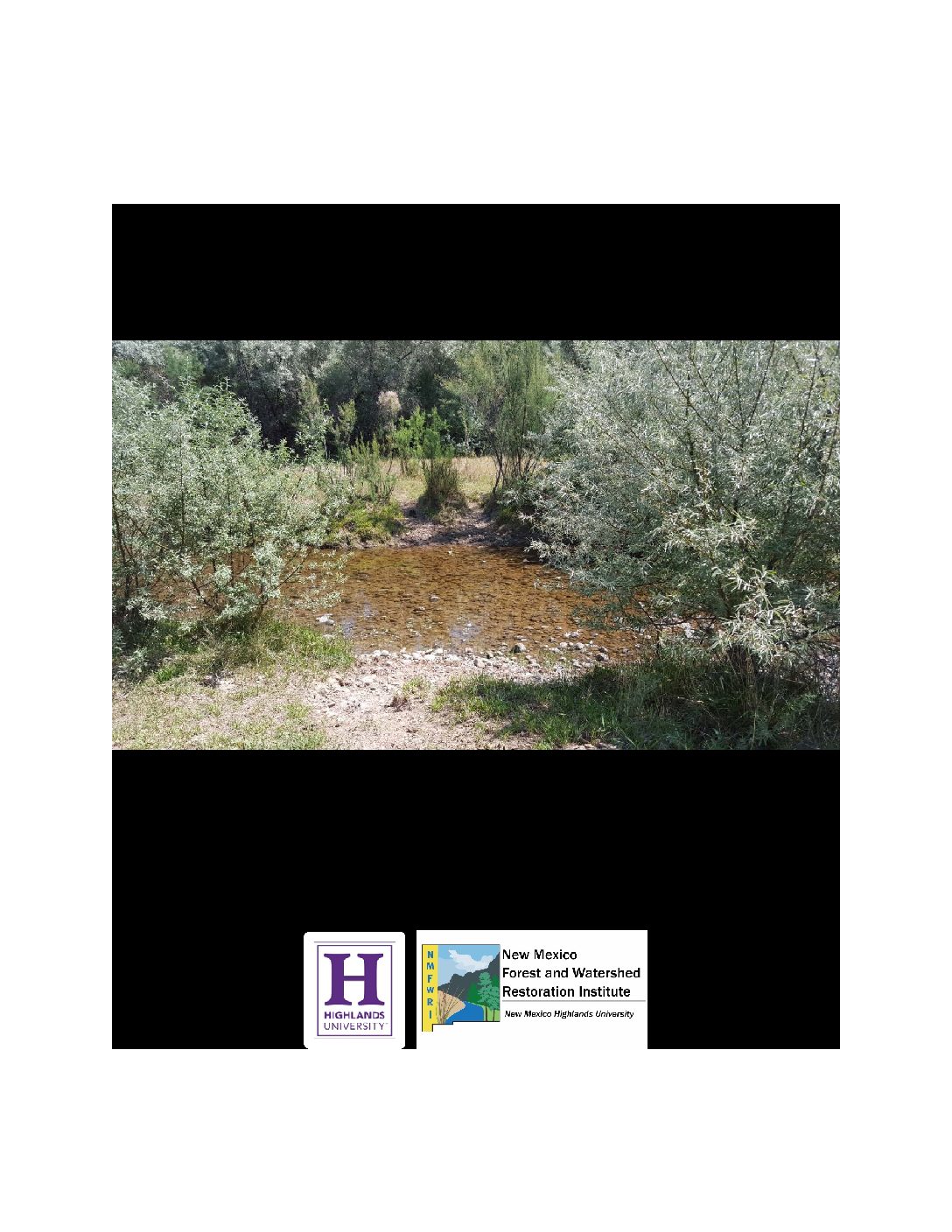
Literature Review of Four Invasive Phreatophytes and One Invasive Grass within the Bosque Forest of the Middle Rio Grande
(Tamarisk leaf beetle overview begins on page 12)

Why Are My Trees Brown? Tamarisk and the Tamarisk Beetle
Tamarisk Leaf Beetle Pamphlet – Rivers Edge West
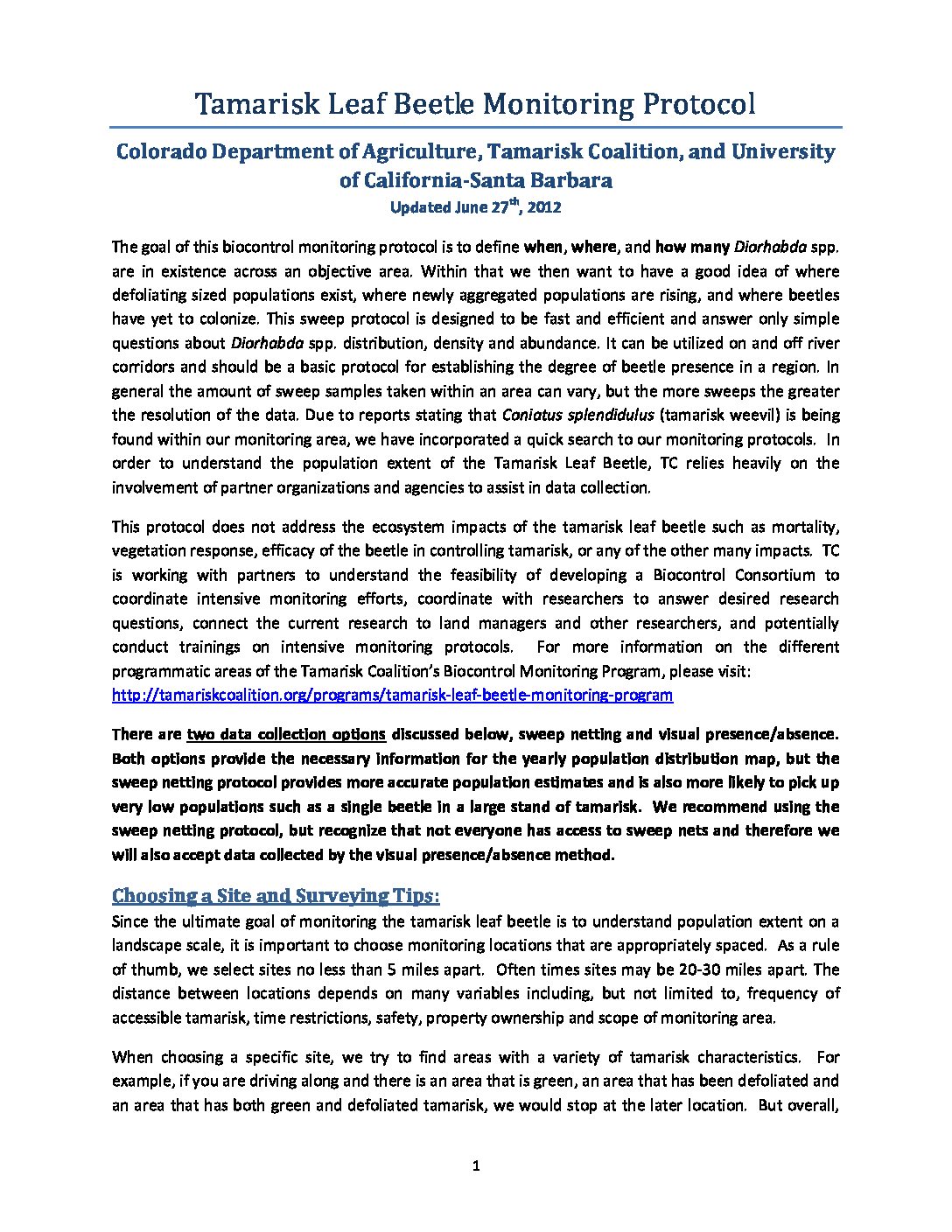
Tamarisk Leaf Beetle Monitoring Protocol
Colorado Department of Agriculture, Tamarisk Coalition, and University of California-Santa Barbara Updated June 27th, 2012
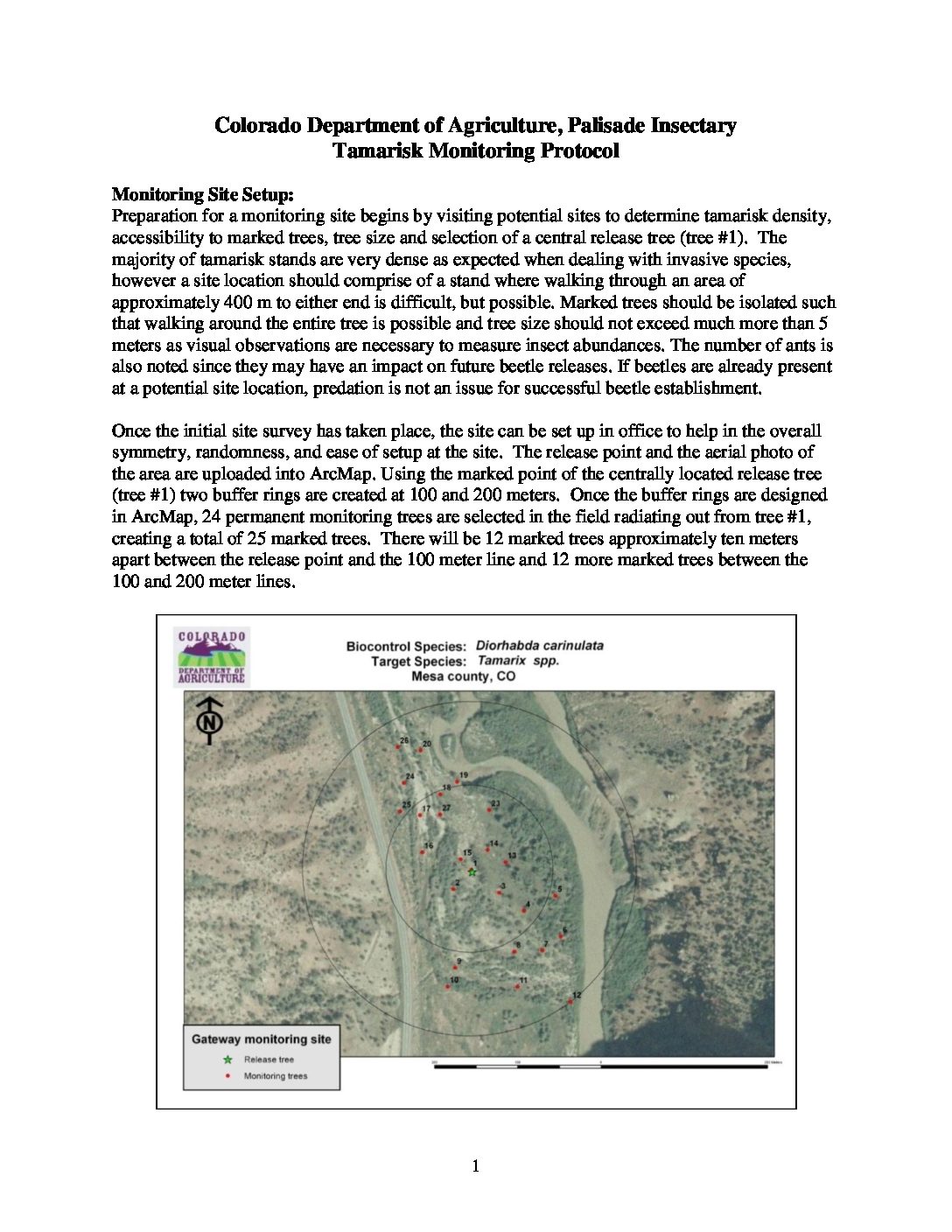
Tamarisk Leaf Beetle Impact Monitoring Protocols
Colorado Department of Agriculture, Palisade Insectary Tamarisk Monitoring Protocol

